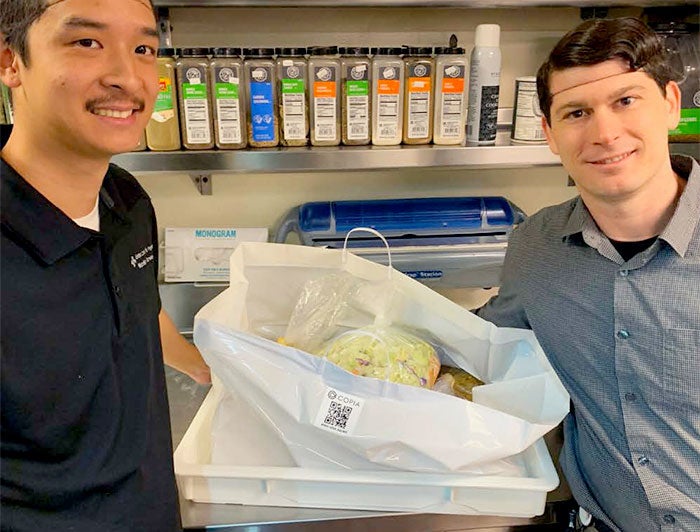How Sutter Health diverts food surplus to feed the hungry — and saves emissions
Sutter Health
Sacramento, Calif.

Food insecurity and food surplus exist at opposite ends of the spectrum, but they go hand in hand when it comes to their impact on public health. Food insecurity, experienced by more than 44 million people annually within the U.S., is connected to an array of health care issues. On the other hand, food surplus or unused food can lead to food waste, which is linked to both hunger and chronic disease; can be hazardous to health when disposed of improperly; and impacts our ecosystems.
Sutter Health observed both barriers to public health within their communities, so they partnered with innovative surplus redistribution tool Copia and collaborated with local organizations to solve them. Since February 2020, the Sacramento-based health system has been diverting hospital food that would otherwise go uneaten onto the plates of community members who need it most. This first-of-its-kind project in northern California delivered 68,600 meals — including a whopping 82,300 pounds of food — to 45 nonprofits that serve food insecure populations across the Bay Area and Sacramento Valley in 2023 alone.
“We have made tremendous strides with this program in the past four years, and we are proud to partner with Copia on this great work,” said Sutter Health Food & Nutrition Services Executive Jack Breezee. “Sutter Health is making a huge impact on our communities.”
To accomplish this, Sutter Health originally collaborated with nonprofit Health Care Without Harm to implement the program, partially funded by the Department of Resources Recycling and Recovery (CalRecycle) through California Climate Invest. The project’s operational muscle is provided by Copia, a technology-enabled surplus recovery service that allows businesses to easily distribute excess food.
In Sutter’s 16 participating hospitals, food service employees use Copia to measure food surplus as well as donate unsold or unserved excess food. After employees weigh excess food and submit food donations through Copia’s software application via tablets, drivers are automatically dispatched by Copia’s mobile app to pick up and deliver excess food to local nonprofits, which are an average of 4.4 miles away from the donation site.
And as this program addresses a key social driver of health, it also diverts food from landfills, saving a total of 18.8 million gallons of water, 253,400 pounds of CO2 emissions and 12,900 gallons of gas in 2023.
Read more about Sutter Health’s sustainability initiatives.

